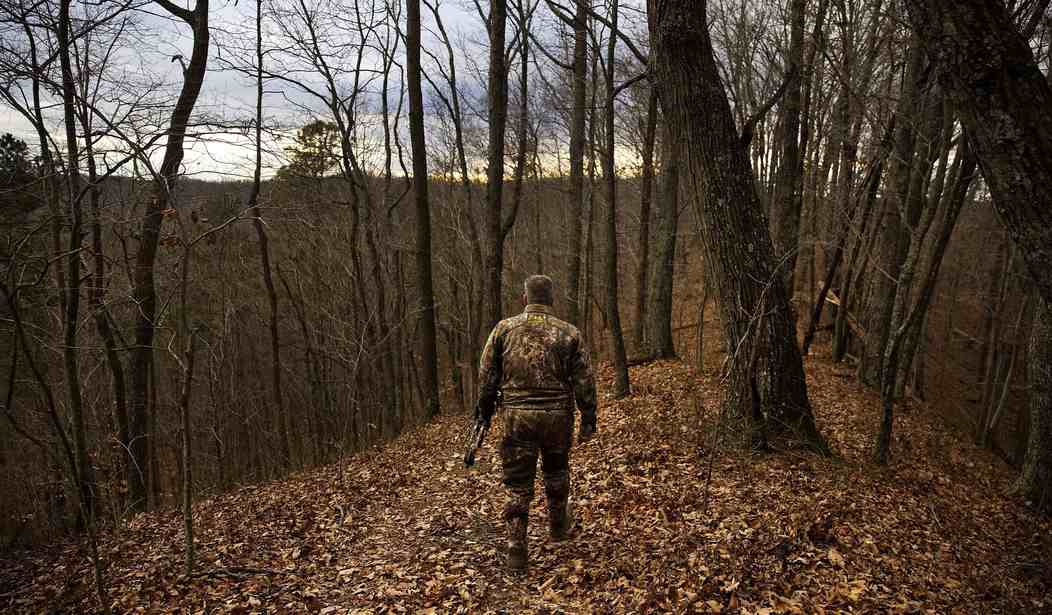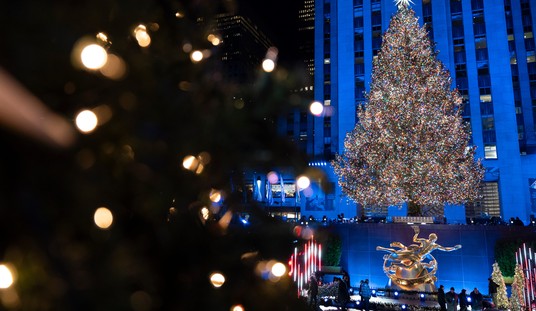There are only a handful of states around the nation that still have archaic Sunday hunting bans on the books. My home state of Virginia is one of them, though the outright ban was modified a couple of years ago to allow for hunting on private land, and the state legislature just repealed the ban on Sunday hunting on public land a few weeks ago.
Maine, however, still has its Sunday hunting ban on the books, though a new lawsuit could undo the restriction if a judge agrees with the somewhat novel argument that the ban is in conflict with a new amendment to the state’s constitution that declares ” all individuals have a natural, inherent and unalienable right to grow, raise, harvest, produce and consume the food of their own choosing for their own nourishment, sustenance, bodily health and well-being.”
Virginia Parker of Readfield filed the lawsuit against the state on behalf of herself and her husband, Joel, to end the Sunday hunting ban because of “the unalienable constitutional right to harvest food, superseding the old religious ban on Sunday hunting.”
The couple belong to the 2,600-member Facebook group, “Maine Hunters United for Sunday Hunting.”
Virginia Parker was joined at a news conference by lobbyist Jared Bornstein, the group’s founder, and her attorney, Andrew Schmidt, after the lawsuit was filed at the courthouse Wednesday. Judy Camuso, commissioner of the Maine Department of Inland Fisheries and Wildlife, is named as the defendant in the suit.
The new lawsuit calls the decades-old ban a “historical and religious anachronism” that must be taken off the books because it now conflicts with the state’s Department of Inland Fisheries and Wildlife’s “natural resource management and safety goals.”
Joel Parker, like many hunters, works Monday through Friday, which only gives him the weekend to take to the field or climb a tree stand in search of some tasty and nutritious wild game. That means that Parker only has one day each week where we could potentially hunt, but when you factor in kids’ schedules and the other day-to-day chores and tasks we’re all faced with, the ban on Sunday hunting has even more of an impact.
Without the ability to hunt on Sundays, and because of both work and their children’s school schedules, the Parkers have only one day per week when they can teach their children to hunt or hunt together as a family. Moreover, due to the ban on Sunday hunting, the Parkers cannot plan a full weekend hunt as a family in more remote areas of the state because they only have one day per weekend to hunt.
Enter the state’s Right to Food amendment, which the Parkers say supersedes state law banning hunting on Sundays.
Like many states, Maine’s Sunday hunting ban has its origins in the “Old Sunday Law” that restricted most activities—such as shopping and other business activities—from taking place on Sundays for religious reasons. In 1883, when Maine enacted its first hunting laws, including setting hunting seasons, Sunday was excluded from the hunting season in line with Sabbath law.
The “Old Sunday Law” was chipped away until even alcohol could be sold on Sunday mornings in 2015. And similar hunting bans in other states fell away, with only Massachusetts still currently enforcing a full ban on Sunday hunting.
It is the official position of the Department of Inland Fish and Wildlife that the Sunday hunting ban is social and not biological in nature. During a hearing on the topic of Sunday hunting, the Department Resource Management Director for IFW testified to the Maine legislature on behalf of IFW that “. . . I would say this information reinforces this as a social issue, not a biological discussion.”
It’s absolutely a social issue, and not one of proper wildlife management. Here in Virginia the supporters of the ban weren’t talking about how it would benefit the deer population. Instead, their arguments were mostly about wanting to have one day a week when they felt safe to walk in the woods. Given that 47 other states don’t have bans on Sunday hunting and also don’t have an issue with hikers and hunters doing their own thing, that argument didn’t have quite the emotional resonance that it once did.
Those lobbying to remove the ban, on the other hand, couched their arguments in terms that are very similar to the ones used by the Parkers and their attorneys in Maine.
I would respectfully ask you: In 2022, would you support a ban on fishing on Sundays? A ban on hiking on Sundays?” asked John Culclasure with the Congressional Sportsmen Foundation. “On Sundays, we can buy tobacco, buy alcohol, buy hard liquor, lottery tickets, gamble, go to breweries, see live music, do everything except hunt.”
Eric Lehmann, speaking for the Virginia Public Land Hunters and Fishermen, a Facebook group with more than 9,000 members, called the existing prohibition “a true religious liberties issue.”
“It forces largely Christian viewpoints, day of rest beliefs, on other religious and nonreligious public land users,” he said.
If that argument was good enough to win over Virginia Democrats, maybe it’ll work to win over a judge in Maine as well. As a First Amendment supporter as well as a Second Amendment advocate, I certainly hope that’s the case. The state’s ban on Sunday hunting can certainly be ended without infringing on our right to worship, but there’s a very strong argument that the ban is causing undue harm to those wishing to exercise their right to harvest food of their choosing fresh from the field.









